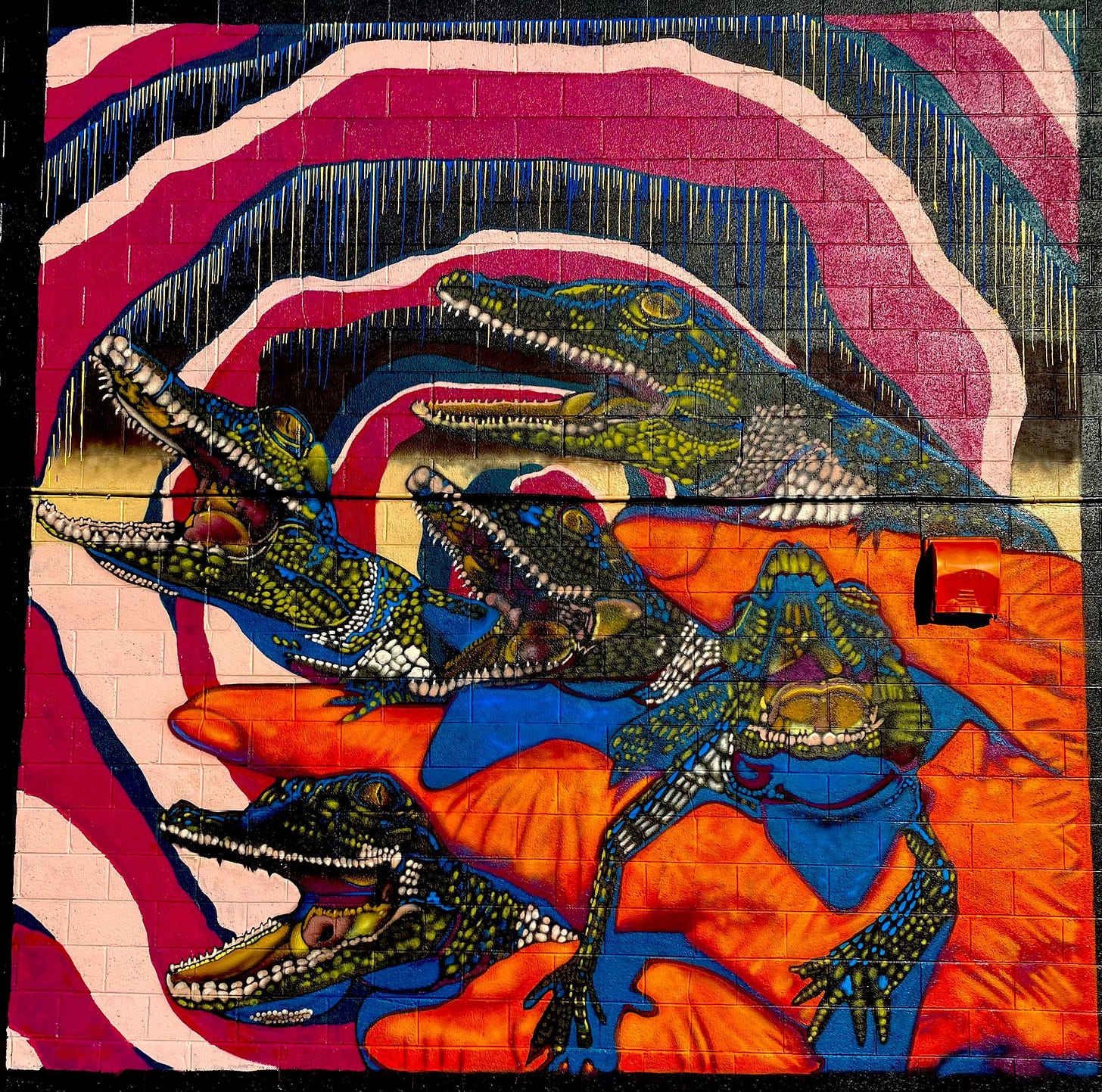Namaste
Graffiti Art
Bhagavad-gītā As It Is » Chapter Two
Bg. 2.3
क्लैब्यं मा स्म गमः पार्थ नैतत्त्वय्युपपद्यते ।
क्षुद्रं हृदयदौर्बल्यं त्यक्त्वोत्तिष्ठ परन्तप ॥ ३ ॥
klaibyaṁ mā sma gamaḥ pārtha
naitat tvayy upapadyate
kṣudraṁ hṛdaya-daurbalyaṁ
tyaktvottiṣṭha paran-tapa
Synonyms
klaibyam — impotence; mā sma — do not; gamaḥ — take to; pārtha — O son of Pṛthā; na — never; etat — this; tvayi — unto you; upapadyate — is befitting; kṣudram — petty; hṛdaya — of the heart; daurbalyam — weakness; tyaktvā — giving up; uttiṣṭha — get up; param-tapa — O chastiser of the enemies.
Translation
O son of Pṛthā, do not yield to this degrading impotence. It does not become you. Give up such petty weakness of heart and arise, O chastiser of the enemy.
Purport
Arjuna was addressed as the son of Pṛthā, who happened to be the sister of Kṛṣṇa’s father Vasudeva. Therefore Arjuna had a blood relationship with Kṛṣṇa. If the son of a kṣatriya declines to fight, he is a kṣatriya in name only, and if the son of a brāhmaṇa acts impiously, he is a brāhmaṇa in name only. Such kṣatriyas and brāhmaṇas are unworthy sons of their fathers; therefore, Kṛṣṇa did not want Arjuna to become an unworthy son of a kṣatriya.
Arjuna was the most intimate friend of Kṛṣṇa, and Kṛṣṇa was directly guiding him on the chariot; but in spite of all these credits, if Arjuna abandoned the battle he would be committing an infamous act. Therefore Kṛṣṇa said that such an attitude in Arjuna did not fit his personality.
Arjuna might argue that he would give up the battle on the grounds of his magnanimous attitude for the most respectable Bhīṣma and his relatives, but Kṛṣṇa considered that sort of magnanimity mere weakness of heart. Such false magnanimity was not approved by any authority. Therefore, such magnanimity or so-called nonviolence should be given up by persons like Arjuna under the direct guidance of Kṛṣṇa.
Art
About the podcast:
This is mantra meditation with music. The first chant is a call for spiritual protection and the rest is the maha mantra.
Here are the words and their meanings.
Narasimha prayer
namas te narasimhaya
prahladahlada-dayine
hiranyakashipor vaksaha
shila-tanka-nakhalaye
I offer my obeisances to Lord Narasimha, who gives joy to Prahlada Maharaja and whose nails are like chisels on the stonelike chest of the demon Hiranyakasipu.
ito nrisimhah parato nrisimho
yato yato yami tato nrisimhah
bahir nrisimho hrdaye nrisimho
nrisimham adim sharanam prapadye
Lord Nrsimha is here and also there. Wherever I go Lord Nrsimha is there. he is within the heart and is outside as well. I surrender to Lord Nrsimha, the origin of all things and the supreme refuge.
tava kara-kamala vare
nakham adbhuta-shringam
dalita-hiranyakashipu-tanu bhrigam
keshava dhrita-narahari-rupa
jaya jagadisha hare
O Kesava! O Lord of the universe! O Lord Hari, who have assumed the form of half-man, half-lion! All glories to you! Just as one can easily crush a wasp between one's fingernails, so in the same way the body of the wasplike demon Hiranyakasipu has been ripped apart by the wonderful pointed nails on your beautiful lotus hands.
Maha mantra
Hare Krishna Hare Krishna, Krishna Krishna Hare Hare
हरे कृष्ण हरे कृष्ण , कृष्ण कृष्ण हरे हरे |
Hare Rāma Hare Rāma Rāma Rāma Hare Hare
हरे राम हरे राम , राम राम हरे हरे ||
Meaning
The Hare Krishna mantra, also referred to reverentially as the Maha Mantra “Great Mantra”. This Mantra is composed of three Sanskrit names of the Supreme Being; “Hare,” “Krishna,” and “Rama.
Understanding
Hare refers to the energy of that One Infinite Source of all of us. The energy thats present all around us.
Rama and Krishna refer to God Himself Who is supremely attractive in all ways and Who bestows unlimited pleasure.
Benefits
By chanting the Mantra, you become connected to Kṛṣṇa through sound and can become ecstatic in love.
Stay outside and keep it real savages.
✌


















Share this post